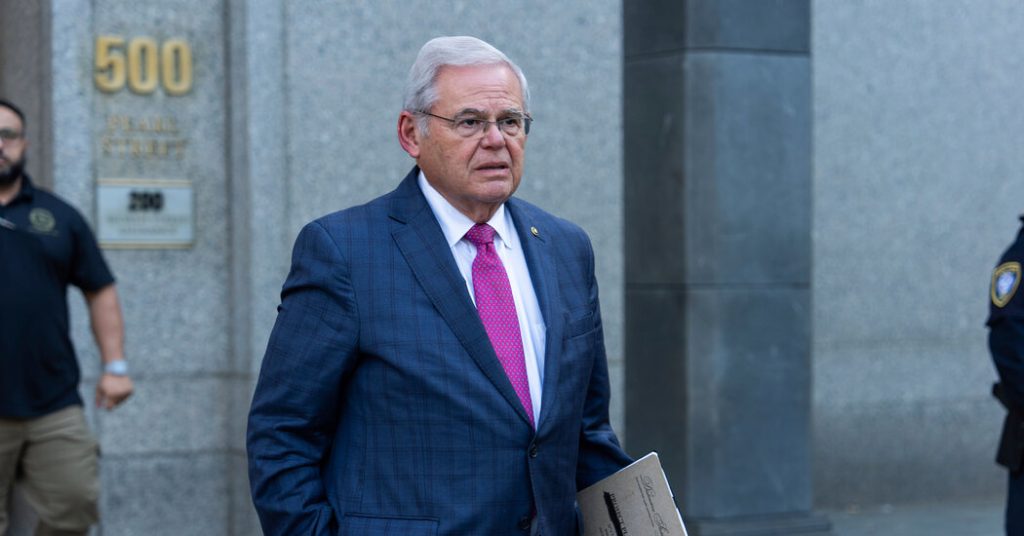A federal judge blocked prosecutors from introducing specific evidence in Senator Robert Menendez’s corruption trial. The judge cited protections under the “speech or debate” clause of the Constitution, which prevents the government from using legislative actions to prove criminal conduct. This ruling could weaken the bribery charges against Senator Menendez as prosecutors intended to focus on promises made before his votes and actions. The judge’s decision precluded certain exhibits, including messages and articles related to aid to Egypt that could have linked Mr. Menendez to accepting bribes. The senator’s lawyers welcomed the ruling as a defense of the Constitution’s protections for elected representatives.
Legal experts recognize the importance of the “speech or debate” clause in allowing members of Congress to carry out their duties without interference from the executive branch or courts. While acknowledging the challenges it poses for prosecutors, a federal attorney emphasized that the clause does not make members of Congress immune to criminal responsibility. Senator Menendez and his defense team have consistently argued that prosecutors are attempting to criminalize routine legislative activity since the charges were brought against him and his co-defendants. The defendants, including Mr. Menendez’s wife and a businessman, are accused of conspiring to pay bribes in exchange for the senator’s actions related to criminal cases, aid and weapons for Egypt, and support of a halal meat monopoly.
Prosecutors have seized significant assets, including cash, gold bars, and a luxury car, during searches related to the case. A criminal defense lawyer in New Jersey called the judge’s decision a “significant legal victory” that could weaken the government’s case against Mr. Menendez and his co-defendants. The ruling limits the evidence that prosecutors can use to prove bribery charges against the senator. The defense team sees this as a defense of constitutional protections for elected officials. The trial, which has been ongoing for two weeks, may face additional challenges due to the limitations on evidence presented by the court.
The ruling by Judge Sidney H. Stein focused on the exclusion of specific evidence related to messages and articles linking Mr. Menendez to bribes in exchange for legislative actions. This decision could impact the government’s ability to prove key elements of the bribery charges against the senator, potentially weakening their case. Legal experts note the importance of the “speech or debate” clause in protecting members of Congress from undue interference in their legislative duties. The defense team for Mr. Menendez and his co-defendants have argued that prosecutors are attempting to criminalize normal legislative activity, and the exclusion of certain evidence could be seen as a win for the defense.
The prosecution’s case against Senator Menendez and his co-defendants involves allegations of bribery in exchange for the senator’s actions related to aid for Egypt, support for a meat business, and meddling in criminal cases. The defendants have pleaded not guilty to the charges, and their defense team has argued that routine legislative activities are being unfairly targeted by the government. The judge’s ruling limits the evidence that prosecutors can present to support the bribery charges against the senator, potentially weakening their case. Legal experts recognize the challenges posed by the “speech or debate” clause but emphasize its importance in protecting the separation of powers and the legislative process.








